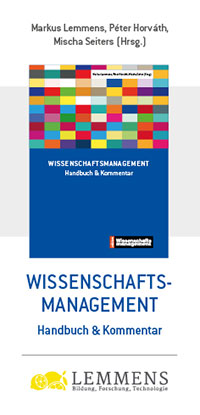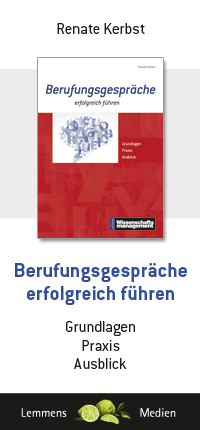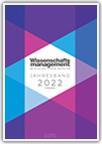Rethinking the role of universities
news
Case: Future of the universities
Rethinking the role of universities

The future of learning is equally at the top of mind for all generations: With 75 percent of Leaders of Tomorrow and nearly 65 percent of Senior Leaders viewing the future of education and training systems as urgent or very urgent, it’s their second highest common priority in the 2022 Voices of the Leaders of Tomorrow Report, developed jointly by the St. Gallen Symposium and the Nuremberg Institute for Market Decisions.
…
CASE introduction
Considering these trends, the role universities play in society and the economy will need to change. Many industries including mobility and retail have experienced radical changes due to disruptive innovation. If universities continue not to act, then they too may be disrupted by new entrants in the education sector such as MOOCs (massive open online courses) and EdTech companies like EdX, Udacity, or Coursera. These challenges are profound and reflect broader societal issues. For instance, universities will need to play a vital role in supporting societal and environmental development as envisioned by the UN Sustainable Development Goals.
Undoubtedly, the COVID-19 pandemic accelerated digitisation both in business and in how we work, learn, and interact with each other. After spending nearly two years in front of their computers and rapidly adopting digital solutions such as Zoom in education and teaching, we are now finally welcoming students back on campus to pursue higher education in person. To fully exploit our collaborative advantage, we must develop innovative models of collaboration within the ecosystem of higher education. How can universities co-create value for students, businesses, and society and educate the next generation of responsible leaders?
…
CASE discussion
To gather diverse viewpoints, discussions drew on expertise from the private sector, academia, next- generation leaders, and the public sector. Two pivotal questions guided the discussion and are highly relevant to this CASE:
• Through which innovative models of collaboration within the ecosystem of research and education can universities co-create value with students, businesses, and society?
• In which key areas will a collaborative approach allow universities to prepare students and employees for the future of work?
…
Open Individuals: Empowering students to become the next generation of responsible leaders
Up to this day, universities focus largely on teaching domain-specific knowledge and facts. To prepare students for a complex and agile future of work, universities should provide students with more phenomenon- based problem-solving and collaboration competencies, as well as leadership and soft skills necessary to become the next generation of responsible leaders.
…
Self- and shared leadership
In an increasingly volatile, fast-changing world, the need for agility is leading to “flatter”, de-structured organisations. The future of work will be based on challenges, tasks, and projects rather than on functional domains like finance, IT, or marketing. This will increasingly require adaptive self- and shared leadership to respond to growing complexity. Due to increased interconnectivity, education needs to adapt to the changing job requirements shifting from technical, domain-specific knowledge to collaborative and soft skills.
…
Open Organisations: Co-Creating value across disciplines, cultures, and sectors
In an age of ecosystems, collaborating with partners to share complementary assets is becoming the new normal. Like other sectors, universities will flourish most if they leverage their existing and craft new partnerships across the public, private, and non-profit sector to co-create value. To ensure shared and collective values are beneficially experienced by everyone in the higher education ecosystem, both collaboration and co-creation will become the highest valued attributes among students, business, and society (Plewa/Galan-Muros/Orazbayeva 2018).
…
Over the last several decades, university- industry partnerships with the goal of transferring technological knowledge from universities into practice have become quite commonplace. Typically, these relationships and their supporting organisations, such as incubators or purposefully established technology-transfer offices, are focused on the translation of research insights into marketable products (Villani/Rasmussen/Grimaldi 2017). University-industry collaboration with the goal of transferring practitioner insights into the higher education context are a relatively new phenomenon.
…
Open Societies: Providing an inclusive, independent space for expertise and discourse
Universities’ expertise and knowledge arbitration are in high demand, given the complex nature of contemporary challenges such as global pandemics, climate change, and a technology-driven transformation of the world of work. This central role will come with opportunities but equally with unique challenges. For universities to assume their role and contribute actively to open societies, independence, professional communication, and inclusivity will be key.
…
CASE conclusions
The higher education sector will undergo a massive transformation in the coming decades. The rapid growth of knowledge, changing work practices in a global economy, new digital technologies, and altered expectations of both employees and employers demonstrate that where, how, and what we learn and teach will be different from today.
…
Overall universities have to think big, start small, and learn faster. They should be the institution where the speed of learning is greater than the speed of change in the environment.
Cross generation roundtable
This White Paper explores how universities can remain at the forefront of higher education in a fast-changing and interconnected world. It draws on expert recommendations and insights from a cross-generational roundtable at the 51˙‘St. Gallen Symposium on 6 May 2022: HSG/St. Gallen Symposium (2022): Rethinking the Role of Universities in the Future of Work and Learning. Joint White Paper.
- Der komplette Artikel ist im ► Onlineshop von Lemmens Medien erhältlich. Den Abonnenten der Zeitschrift Wissenschaftsmanagement steht der gesamte Beitrag in ihren Accounts zum kostenlosen Download zur Verfügung.
Prof. Oliver Gassmann, Professor of Technology Management at the University of St. Gallen (HSG).
Prof. Naomi Haefner, Assistant Professor of Technology Management at the University of St. Gallen (HSG).
David M. Wagner is Ph.D. Candidate and research associate at the University of St. Gallen (HSG).
Felix Rüdiger, Head Content and Research of the St. Gallen Symposium.






















